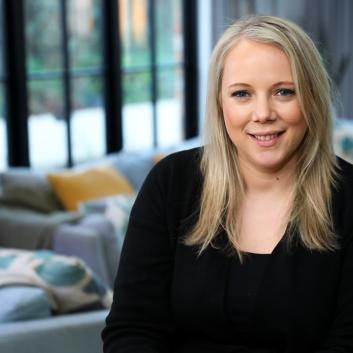How can tech startups benefit from applying ethics?
A small group of members of the World Economic Forum Global Future Council for Values, Ethics and Innovation, designed a gap-filling practical booklet to help startups and SMEs explore hidden commercial risks and trigger better innovations through the integration of tech ethics.
After considering that tech ethics mainly targets big business, they decided to publish the 'Tech Ethics for Start-Ups and SMEs’ booklet.

It aims to offer a quick overview of how ethics can be discussed and managed in innovative businesses without massive resources.
This can be especially useful, where these issues can provide great opportunities if handled well, or potentially devastating risks if poorly managed.
The lead author of this publication Hilary Sutcliffe, director of London-based not-for-profit SocietyInside, shares more insights in this backstage interview.
Hilary was recently named one of the 100 Brilliant Women in AI Ethics for 2021 and in her work, she explores issues related to trust, ethics, values, and governance of technology - especially concerning nanotech, biotech and AI – through collaborative research.
“We have designed the ‘Tech Ethics for Start-Ups and SMEs’ booklet as an easy-to-take on board advice for companies, in particular, developing or using new and emerging technologies, in all countries, across all sectors.
I have been working on issues of company ethics since the mid-1990s and witnessed the evolution of business responsibility from being sidelined community relations and philanthropy topic to becoming a more complex core business issue that could determine success on the market.
Our work over 20 years in ‘Responsible Research and Innovation’ suggests if companies start thinking about this early, and continue to take these issues seriously as they grow, they can head off the problems currently facing so many before they become disasters.
So much of the airtime and attention on ethical business is directed at big tech companies, but big tech grows from small tech.
We wanted to create an unassuming, accessible little booklet to be read by someone in a startup or small company.
With the help of other experts, we shaped the content to be easy to follow.
Main contributors are including Prof Angie Hobbs from the University of Sheffield, UK, Pamela Mar from the Fung Academy Hong Kong, Dr Emad Yaghmaei from the Technical University of Delft and Professor Ashok Jhunjhunwala from the Indian Institute of Technology, Madras.
In tech, often they know they should be thinking about this, but don’t have much time and don’t quite know where to start and what sort of things it might practically entail.
The publication explores the difference between values and ethics; highlights some examples and ways of working, which will help navigate ethical issues and some ideas on ethics in practice from companies in different tech areas.
It showcases some accessible ideas of what ethics is, why it’s important now, even in these testing times, and how some companies approach ethical thinking in various tech sectors.
Sprinkled in there are a few motivational quotes and cool ways to simply make it normal to discuss and resolve ethical dilemmas in small businesses.
One of my favourite examples of how ethics can be translated into business strategy is the Riversimple company, which designs hydrogen cars.

They have gone far beyond their core purpose to “To pursue, systematically, the elimination of the environmental impact of personal transport”.
The amazing way they have aligned their entire business model, supply chain, governance and business processes towards this purpose provides a valuable learning opportunity about how to turn this way of thinking into a market advantage.
All, while disrupting the sector and making a cool car in the process.
There is massive potential in putting ethics on your business agenda.
Ethical issues are a fantastic catalyst for innovative thinking - after all, innovation in all spheres invariably comes from problems identified and new ways found to solve them!
I’m not sure you really ‘apply’ ethics, so much as decide to act upon a belief that issues of right and wrong - values and morals - have a place in business, particularly in relation to the business impact on people and planet.
One of my co-authors, Dr Emad Yaghmaei, Senior Researcher at the Faculty of Technology, Policy and Management at the Delft University of Technology, the Netherlands, has put it this way:
“Ethics in my view is the integration of objective rights and subjective values into a common and contextual framework rather than only doing the right thinking in the research and innovation process and being a set of predefined rules impeding progress.
Following this line, ethics concerns the analysis and integration of different values and norms into the design and development of research and innovation, which can trigger the execution of Responsible Innovation.”
The five key focus areas that you will find in the booklet:

- Ethics could be your biggest hidden commercial risk - so put it on your Risk Register.
- Find out what ethical issues matter to you.
- Start with values and work from there.
- Make it normal to discuss ethics and think about problems in advance.
- Be collaborative in resolving issues.
This is not the usual set of guidelines or a framework - there are plenty of those available already.
It is designed for the step before that.
We haven’t got a magic formula for every possible scenario; therefore, this booklet's focus is not on providing a long list of potential issues to scroll through, but about how organisations can find out for themselves what their relevant ethical issues are.
Each organisation will have its own systems and processes and will need to find their way of dealing with them in the context of their sector, country, culture.
Using the ‘Tech Ethics for Start-Ups and SMEs’ booklet teams could efficiently work in a collaborative process that would help them deal with dilemmas and find solutions to ethical problems.
This free to use publication was officially launched on 28th January 2021, ready to make its way to innovators to create better innovations that would serve everyone better.
We would love to do more to promote the guidelines and reach out to innovators.
We welcome opportunities to do that and of course, funding to set up more events and platforms to bring these ideas to the attention of tech companies everywhere.”
















